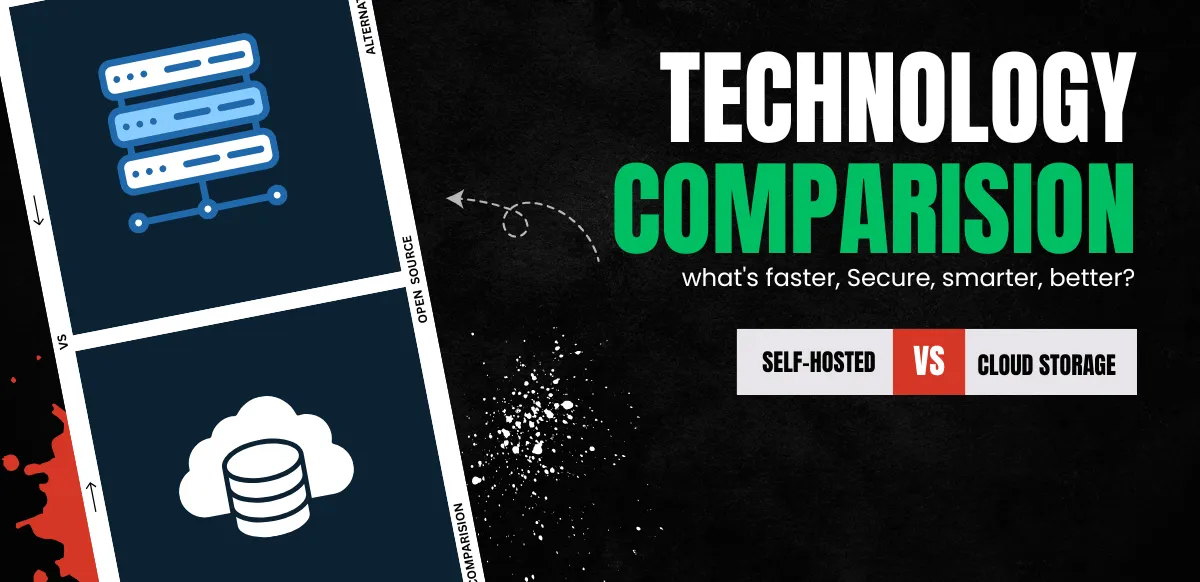
In today’s digital world, storing files online has become second nature. Whether it’s work documents, family photos, or your startup’s data, choosing where and how to store that information is more important than ever. When comparing self-hosted vs. cloud storage, the question isn’t just about space—it’s about privacy, control, and long-term reliability. That’s where Nextcloud steps in as the private, secure alternative you might not know you needed.
What Is Cloud Storage?
Cloud storage refers to data being stored on external servers managed by companies like Google, Dropbox, or Microsoft. These providers offer convenience and accessibility, allowing you to upload files and access them from anywhere.
Common Cloud Storage Providers
- Google Drive
- Dropbox
- OneDrive
- iCloud
While these platforms are easy to use, they often come with hidden trade-offs—like limited privacy, vendor lock-in, and usage restrictions.
What Is Self-Hosted Storage?
Self-hosted storage means you manage your own storage server. You decide where your data lives, how it’s secured, and who can access it. Solutions like Nextcloud allow users to create their own private cloud, giving full control over data and infrastructure.
With self-hosting, there’s no middleman. You’re not handing over your files to a third party—you’re storing them securely on your own hardware or trusted hosting environment.
Self-Hosted vs. Cloud Storage: Key Differences
1. Data Ownership and Control
Cloud Storage: Your data is stored on someone else’s server. The provider sets the terms and has access to metadata, and sometimes even the content.
Self-Hosted (Nextcloud): You are in full control. Your data stays on your server, and no one else can view or mine it.
2. Privacy and Security
Cloud Storage: These services are often targets for hacking, data leaks, or government access requests.
Self-Hosted with Nextcloud: Encryption, 2FA, and server-side security tools ensure your files remain safe and private.
3. Customization
Cloud Storage: You get what the provider offers. Feature changes can happen without your input.
Nextcloud: Fully customizable interface and plugins. You decide how your cloud works.
4. Cost
Cloud Storage: Monthly or yearly subscriptions that can become costly at scale.
Self-Hosted: Initial setup might require investment in a server, but ongoing costs are predictable and often lower in the long run.
5. Compliance and Regulation
Cloud Storage: Compliance depends on the provider. You may not meet GDPR or HIPAA unless you use enterprise-level plans.
Nextcloud: Helps meet compliance standards with full control over data location and access.
Why Nextcloud Stands Out as a Private Cloud Alternative
Built for Privacy
Nextcloud is open-source and self-hosted, which means it’s built with privacy as a priority. Unlike commercial cloud providers, it doesn’t track your data or limit your freedom.
Feature-Rich and Modular
From file sharing to video calls, calendar sync to collaborative document editing, Nextcloud offers a full suite of tools. You can also add apps based on your needs—just like building your own private workspace.
Easy to Use
Even for non-technical users, setting up and using Nextcloud is simple. With user-friendly interfaces and a growing support community, managing your own cloud isn’t as complex as it sounds.
Use Cases Where Nextcloud Shines
-
Small Businesses
Keep business files secure, collaborate with team members, and avoid paying high subscription fees. -
Freelancers and Creators
Store projects, manage clients, and share files securely without worrying about data mining or ads. -
Families and Personal Use
Back up photos, videos, and important documents with complete peace of mind. -
Educational Institutions
Provide students and staff with private file sharing, messaging, and document collaboration without handing data to big tech.
Myths About Self-Hosting You Should Ignore
-
Myth 1: “Self-hosting is only for IT pros.”
Reality: Platforms like Nextcloud make it simple. Managed hosting services can even set everything up for you. -
Myth 2: “Cloud storage is always cheaper.”
Reality: Over time, subscription costs add up. With self-hosting, you pay once and control the costs. -
Myth 3: “Self-hosted means less reliable.”
Reality: You can choose trusted hosting providers or even set up redundant backups to ensure uptime.
Choosing Between Self-Hosted and Cloud Storage: A Quick Checklist
| Feature | Cloud Storage | Self-Hosted (Nextcloud) |
|---|---|---|
| Privacy | Often Limited | Complete Control |
| Cost Over Time | Recurring | One-time Setup |
| Customization | Limited | Extensive |
| Ownership | Shared | 100% Yours |
| Security | Varies | You Control It |
How to Get Started with Nextcloud
-
Choose a Hosting Option
You can host it on your own server, Raspberry Pi, or use managed providers. -
Install Nextcloud
Download from the official site or use a pre-installed image. -
Set Up Security Features
Enable SSL, two-factor authentication, and regular backups. -
Add Users & Apps
Customize your cloud with document editing, video calling, and more.
Conclusion
When it comes to self-hosted vs. cloud storage, the choice depends on what you value more—convenience or control. While traditional cloud storage may seem easier at first glance, the long-term trade-offs in privacy, flexibility, and cost can add up.
Nextcloud gives you the best of both worlds: the convenience of cloud access and the security of owning your data. If you’re ready to take control of your digital life, there’s never been a better time to make the switch.

